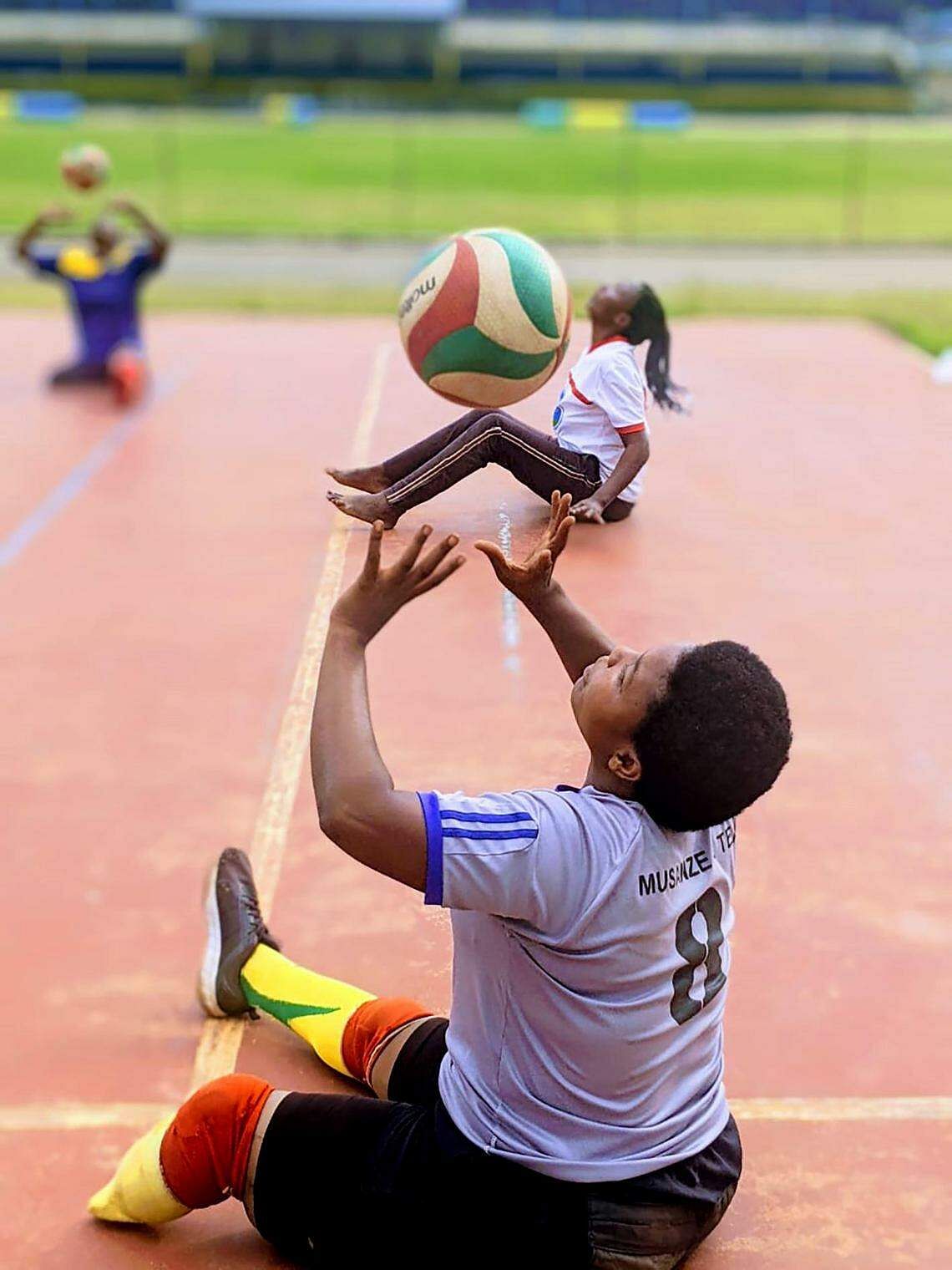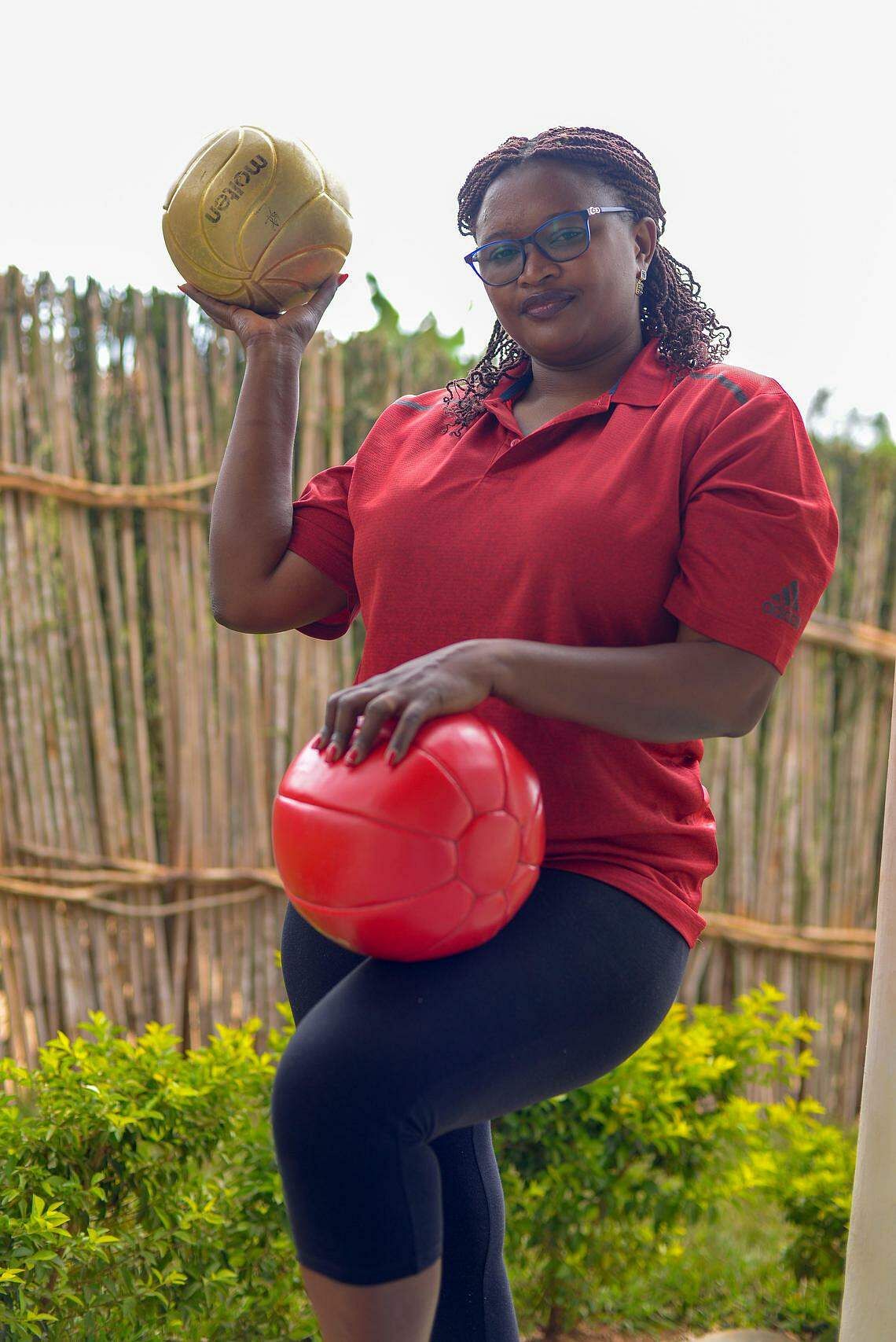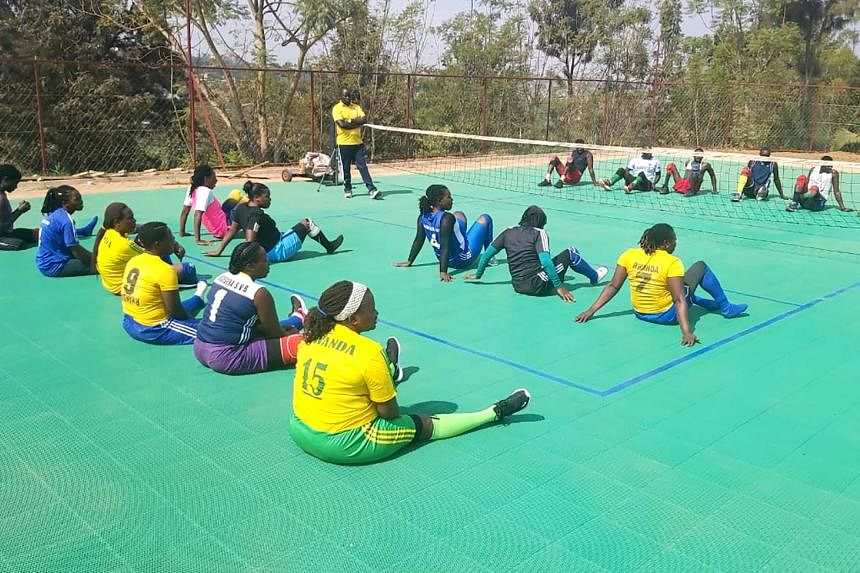KIGALI – In 1997, a routine trip to the supermarket unexpectedly turned into a life-defining moment for Liliane Mukobwankawe.
Then only eight, she was struck in her right leg by a moving car and the accident left her bedridden.
“My life stopped,” recalled the 34-year-old from her residence in the Bugesera district of Rwanda. “Even my parents and siblings thought my life was going to be confined to home. I was prepared not to go back to school and stay at home like I was nothing in the world, forever.”
She had to be cared for by her brother, who carried her to the toilet and drove her to hospital visits.
“When I was in hospital, I witnessed people dying. That was when I realised I was lucky to be alive and I had to press on,” she said.
After eight operations and months in hospital, she was gradually able to walk with the help of crutches.
In 2007, Mukobwankawe was introduced to seatball, a variation of volleyball, by a representative from the Special Olympics committee – sparking her interest in sports.
Now, she is the captain of the Rwanda women’s sitting volleyball team, who are No. 6 in the World ParaVolley rankings and No. 1 in Africa.
Sitting volleyball, initially invented as a rehabilitation sport for injured soldiers, is played on a smaller court with a lower net.
Having competed in the 2016 and 2020 Paralympics, the team are aiming to qualify for their third consecutive Games at Paris 2024.
It has been a meteoric rise for the women’s side, who were founded 11 years ago by the National Paralympic Council (NPC) after the men’s team qualified for the 2012 London Paralympics.
“We did it with men, so why not with women?” said NPC technical director Jean Marie Nsengiyumva. “We recognised a big chance for the women’s team to be one of the best in Africa.”
Most players in the team had no experience in sitting volleyball, said the 55-year-old, who was the head coach of the first national women’s team in 2012.

The first batch of athletes were from the national seatball league and a women’s national sitting volleyball league comprising 10 teams was established in 2014.
A year later, the women’s team pulled off an upset at the African Championships when they beat powerhouses Egypt to qualify for the Rio Paralympics.
For each successful Games qualification in 2016 and 2020, each athlete received three million Rwandan francs (S$3,315). But beyond financial bonuses, these opportunities have empowered the athletes.
Claudine Bazubagira, 50, said: “Sitting volleyball helps me to control my life. I watch what I eat or drink. It makes me feel strong.”
Bazubagira, whose left leg was paralysed after an anaesthetic injection went awry, is one of two athletes in the team aged 50 and above. But she has no plans to retire.
She said: “I used to think I was useless because of my disability, now I want to inspire and tell my four kids nothing is impossible.”
Within the team of 12, four lost limbs during the 1994 genocide that saw the slaughter of close to a million people during a civil war.
Close to three decades later, thousands of amputees who survived the violence are resigned to a life of dependence.
Mukobwankawe said: “I was five years old. My dad died in the genocide. I don’t remember many things but it was really bad. I saw people die in front of me.

“There are people who are not as fortunate as myself. We are trying to inspire them through sitting volleyball that disabled people can achieve many things as well.”
In preparation for November’s World Cup – a qualifying event for the Paralympics – training has resumed under renowned Egyptian coach Mossad Rashad, who led them to a seventh-place finish at the Tokyo Games.
The 50-year-old said: “My big target is to win a medal, whether in Paris next year or in Los Angeles in 2028. I believe they can do it.
“The players have experienced two Paralympics Games and what they need now is more time to practise together to develop the winning mentality.”

